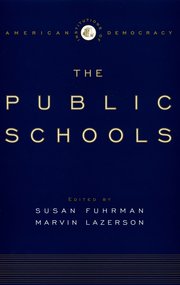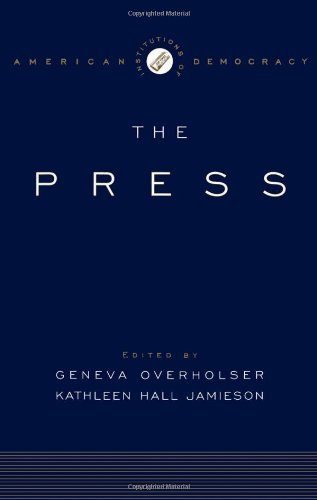About as many Americans consider Rush Limbaugh, the conservative radio talk show star, to be a journalist as say the same of Bob Woodward, the Washington Post’s assistant managing editor who broke the Watergate story with Carl Bernstein.
Institutions of Democracy
Public and Press Differ About Partisan Bias, Accuracy and Press Freedom
The American public disapproves only narrowly of partisan journalism, splits about evenly on whether news organizations usually get their facts straight and narrowly accepts the idea that the government can limit the right of the press to report a story.
Early Voting Reaches Record Levels in 2004, National Annenberg Election Survey shows
One in five general election voters in 2004 reported that they cast their ballots before Election Day, the University of Pennsylvania’s National Annenberg Election Survey shows. That was substantially more than in 2000. Voters were asked whether they cast their ballots on Election Day, or if they had voted before then. Twenty percent of voters
Spending on Issue Advertising in the 108th Congress
Over $404 million was spent on broadcast and print issue advocacy during the 108th Congress, with business interests outspending citizen-based advocacy groups by more than five to one. APPC’s report, Legislative Issue Advertising in the 108th Congress, addresses these findings and many more.
Party Identification by State
Based on answers from registered voters throughout the 2004 National Annenberg Election Survey Kansas, Nebraska and Utah are the most Republican states; Maryland and West Virginia the most Democratic, and Massachusetts, Connecticut and Maine the most Independent.
Bush Inauguration Comes With Nation Still Deeply Divided, Dubious On Iraq, Social Security
George W. Bush will be sworn in this week to lead a nation giving him a lukewarm approval rating, unenthusiastic about his ideas on Social Security, impatient to get out of Iraq and showing no signs of post-election reconciliation, the University of Pennsylvania’s National Annenberg Election Survey shows. In a survey of 1,202 adults conducted
Few American Voters Ever Changed Their Minds, National Annenberg Election Survey Shows
Very few American voters changed their minds during the 2004 presidential campaign, the University of Pennsylvania’s National Annenberg Election survey shows. Just 16 percent of those who voted for George W. Bush said there was “ever a time” when they thought they would vote for John Kerry. And 15 percent of Kerry voters said there
Bush 2004 Gains among Hispanics Strongest with Men, And in South and Northeast, Annenberg Data Show
George W. Bush’s gains among Hispanics were strongest among men, Southerners and Northeasterners, the University of Pennsylvania’s National Annenberg Election Survey shows. In the fall of 2000, only 34 percent of Hispanic men supported him over Al Gore, but in 2004, 46 percent did. Among Hispanic women, his support rose only from 35 to 36

